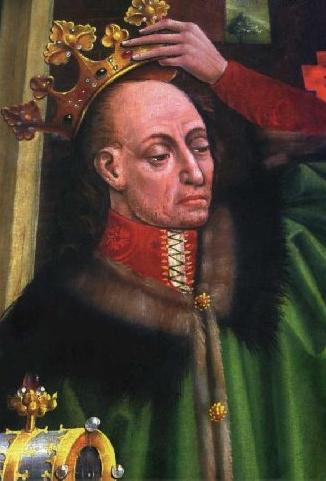
A princess thrust into a war of religions, negotiating for peace and seeing it through to its end, leaving a throne to seek self actualization, but the lack of rule creating a void.
Story in the evening ...
Story in the evening ...
https://twitter.com/Arby_K/status/1327065249422327808
Princess Kristina Augusta was born in 1626, the only child of the Swedish king Gustaf Adolf and his wife Marie Eleonore.
Her father had propelled Sweden as a great northern power and raising it into a military power. 1/10
Her father had propelled Sweden as a great northern power and raising it into a military power. 1/10

In 1630, Sweden, a Lutheran state, entered the war raging in Germany over religion. Gustaf's leadership turned a losing Protestant effort towards victory. But his death in 1632 during the Battle of Lutzen would put a brake on it and a young Kristina on the throne of Sweden. 2/10 

The Protestants were victorious in Lutzen and the Swedish war effort would continue, as regents ruled Sweden on Kristina's behalf. She grew up as an excellent student, with the best of teachers; inviting René Descartes to teach philosophy. He would later die in Stockholm. 3/10 

In 1644, she would come of age and take the throne for herself. Though Sweden's role in the German religious wars had diminished after her father's death and entry of France, Kristina kept a watchful eye as she sued for peace. The war would incur a terrible cost on Europe. 4/10 

Kristina would gain control of Bremen, Verden and Western Pomerania in the Peace of Westphalia that ended the Thirty Years War. With the war done away with, she would focus her attention of arts and science. Sweden grew as a centre for learning during this period. 5/10 

In 1649, having decided not to marry, she would declare her cousin, Karl Gustav von Zweibrücken as her heir, abdicating in his favour in 1654, ending the rule of House of Vasa in Sweden. A senior line was still ruling Poland, though they had been deposed for being Catholic. 6/10 

But at 28, the ex Queen Kristina was done yet. She would convert to Catholicism and move to Rome, where she was accepted with much pomp and show. Her patronage of arts would continue throughout her life leading to the creation of Accademia Dell’arcadia after her death. 7/10 

She would provide the impetus to artists like Alessandro Scarlatti and Arcangelo Corelli. Though she would finally die in 1689, buried in St Peter's Bascilica as one of the three women to buried there, with a strong legacy in arts, it was not the prime driver in her life. 8/10 

Her experience as Queen would remain as a strong emotion. In 1656, she would plot with Cardinal Mazarin of France to seize Naples, which was ruled by Spain. But a betrayal from within would lead to the collapse of that plot. 9/10 

The death of her heir brought her back to Sweden, claiming the crown. But as Catholic, she was refused and five year old Carl XI succeeded his father. When her heirless Vasa second cousin abdicated in Poland, she would make an attempt to get elected, but fail there as well. 10/10 

• • •
Missing some Tweet in this thread? You can try to
force a refresh














